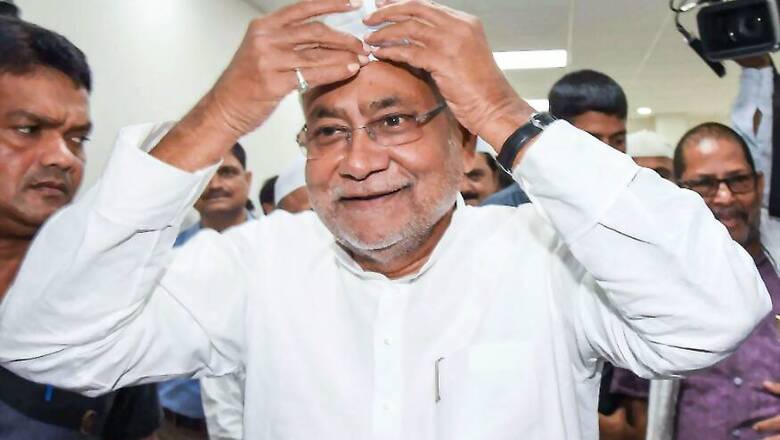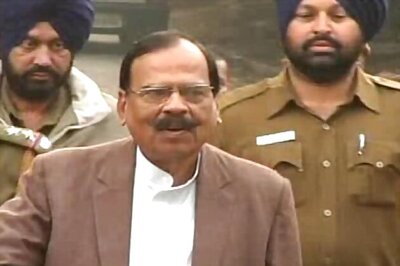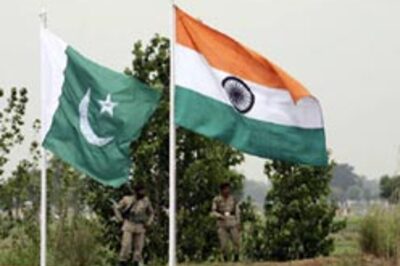
views
Has Janata Dal (United) president and Bihar Chief Minister Nitish Kumar erred by going whole hog in support of the Citizenship Amendment Bill in Parliament? This question is doing the rounds in political circles as Kumar’s decision is fraught with the danger of losing Muslim votes, which he has been assiduously nourishing for the past two decades.
Till recently, Kumar has tried to woo Muslims by opposing the Triple Talaq Bill and the revocation of Article 370 in Parliament. His party MPs, however, cleverly walked out of both Houses of Parliament facilitating passage of the Triple Talaq Bill and the Jammu and Kashmir (Reorganisation) Bill.
But his sudden change in stance has come as a surprise not only to the opposition parties, but also his close confidantes in the face of the stiff opposition to the Citizenship Amendment Bill in north-eastern states of the country. A section of JD(U) leaders fear that migrants from Bihar in the Northeast might also be adversely affected by this legislation.
The party’s vice-president and election strategist Prashant Kishor, and former party MP and career diplomat Pawan Verma have opposed the move, terming the legislation “discriminatory and unconstitutional”. An adamant Nitish Kumar, however, decisively ignored the suggestions of his senior party colleagues and supported the legislation.
It shows a major shift in his political strategy indicting that Kumar can afford to discount the Muslim vote bank so long as he continues in the National Democratic Alliance (NDA) led by the BJP.
At the same time, it prompts one to ponder whether Kumar has yielded to the present genre of aggressive BJP leadership led by Narendra Modi-Amit Shah duo or is it a gambit for a bigger share of seats in the assembly elections due in 2020 and a guarantee for the post of the chief minister if NDA comes to power?
After the 2019 Lok Sabha polls, there have been rifts between the JD(U) and the BJP when Kumar spurned the offer of a single berth in the union cabinet, arguing that the JD(U) deserved a better deal as it was the second largest party in the NDA.
Since then, there has been speculation that the two parties may part ways before the Bihar assembly elections due next year. Kumar, who has walked in and out of the NDA in the recent past, has contested independently in the ongoing Jharkhand assembly polls.
Bihar deputy chief minister and senior BJP leader Sushil Kumar Modi laid the rumours to rest, saying there were no issues between the JD(U) and BJP in Bihar. “We have become much closer after the divorce,” Modi had said referring to the separation period between 2013 and 2017, adding, “We will fight the 2020 elections together and as elections come closer we will amicably decide seat division.”
Senior cabinet minister Neeraj Kumar strongly defended the JD(U)’s stand on the citizenship bill, saying it has nothing to do with party’s secular ideology and that it does not, in any way, violate its secular philosophy. “Moreover, the citizenship legislation does not affect the Muslims at all anywhere in the country,” he said.
In the Lok Sabha elections, the JD(U) had won 16 out of 17 seats it contested in alliance with the BJP without substantial support of the Muslims, who are averse to voting for any combination headed by the BJP. In the recent assembly bypolls, Kumar experimented with the Muslim vote bank and fielded a candidate from the Kishanganj assembly seat, but the party nominee lost miserably to the AIMIM candidate.
According to JD(U) sources, over 70 per cent Muslims voted for the grand alliance (Mahagathbandhan) in the last Lok Sabha polls, while only 6 per cent voted for the NDA. Since 1990, Muslims, who constitute nearly 18 per cent of the total vote bank in Bihar, have stood firmly behind the Rashtriya Janata Dal (RJD). This time too, the RJD-led grand alliance hopes to get Muslim votes in the wake of the Ayodhya verdict, abrogation of Article 370 and the passage of the citizenship bill.
Almost all secular political outfits have attempted to woo minorities through numerous sops and convince them that they are their committed saviours. Muslims, too, have voted en bloc for parties or political formations they believed would safeguard their interests. This factor has made Muslims an important vote bank, whereas the other caste groups have remained fragmented on most occasions.
Bihar has not been an isolated case. Until 1970s, Muslims, by and large, voted for the Congress and formed part of the famous Muslim-Brahmin-Dalit vote bank which led the party to power at the Centre.
When Bangladesh came into existence in 1971, Bihar witnessed a change in Muslim politics. The massacre of Urdu-speaking Bihari migrants generated a wave of sympathy among their kith and kin in Bihar. Leaders like Ghulam Sarwar, Taqi Raheem, Jafar Imam and Shah Mushtaq raised the issue and successfully aroused anti-Congress sentiments among Muslims. The JP movement also had its impact on the Muslim psyche, leading to the formation of the Janata government led by Karpoori Thakur in 1977.
After the Bhagalpur riots of 1989, Muslims once again voted against the Congress, leading to the formation of the Janata Dal government in Bihar led by Lalu Prasad. With their unflinching support, Lalu ruled Bihar for 15 long years, as he played to the gallery through his famous Muslim-Yadav formula.
Lalu Prasad’s challenge to the upper caste hegemony also had its impact on the caste-ridden Muslim society. Backward castes among Muslims like Momins, Ansaris, Rayeens and Kulhaiyas were given reservations in government jobs as per the Mandal Commission recommendations.
The myth of Muslim monolith, however, went for a six just before the assembly elections in November 2005 polls when a section of Muslim voters, especially the weaker sections, supported JD(U) nominees wherever possible.
The backward caste Muslims and Extremely Backward Castes like Lalbegis, Halalkhors and Mehtars sided with the JD(U) under the leadership of Ali Anwar, who headed the Pasmanda Muslim Mahaz. However, the voting pattern in the assembly elections clearly indicated that Muslims did not support BJP nominees, but preferred JD(U) nominees, whom they considered secular.
The JD(U) had made inroads into the Muslim vote bank with several minority welfare schemes that the Nitish Kumar-led government launched. At one point, Kumar methodically and meticulously carved out a niche among the minorities, and in some areas like Bhagalpur, enjoyed an edge over arch-rival Lalu Prasad by re-opening the infamous Bhagalpur riot cases and setting up the NN Singh Commission for probing these cases. Nitish had also announced some financial measures for the uplift of the weaker sections among the minorities.
(The author is a senior journalist. Views are personal)


















Comments
0 comment